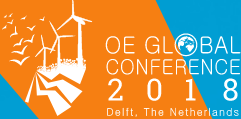UNIR iTED contributes to the Open Education Global Conference
In April 24-26 took place the Open Education Global Conference 2018, in Delft, The Netherlands, a diverse conference focused on open education where researchers, policy makers, educators and students from more than 35 countries discussed and explored about the topic. Along the event, Daniel Burgos, UNESCO Chair on eLearning, ICDE Chair in OER and director of Research Institute for Innovation & Technology in Education (UNIR iTED) contribute to an expert panel. This initiative was organized by a group of UNESCO and ICDE Chairs in Open Educational Resources (OER) in cooperation with a few related organizations, such as Open Education Consortium (OEC), Creative Commons (CC), UNESCO IITE and ICORE.

The panel, called “How can the OER community put he UNESCO OER Action Plan into practice?”, addressed the them “Open Educational Practices/Open Pedagogy” to improve Open Education for better learning quality, and it was part of the discussion about how opening in education helps us achieve universal access, equity, innovation and opportunity in education. In the panel also participated Christian M. Stracke (ICDE Chair in OER, Open University of the Netherlands), Zeynep Varoglu (UNESCO Programme Specialist responsable for OER Action Plan), Jane-Frances Agbu (ICDE Chair in OER, National Open University of Nigeria) and Tel Amiel (UNESCO Chair in Open Education, University of Campinas, Brazil).
The panel was part of the discussion about how opening in education helps us achieve universal access, equity, innovation and opportunity in education
Burgos commented that “Open education is the key for sustainable education. The smart combination of open and proprietary research, data, content, tools and, specially, licensing, means the innovation breakthrough towards an improved educational paradigm. If we can combine formal and informal settings so that we take the best out of both approaches, in a collaborative way, all the stakeholders win.
This panel was a first follow-up activity of the common panel “The Role of the OER community” byt the UNESCO and ICDE Chairs at the UNESCO World OER Congress 2017, that brought together more than 500 stakeholders from over 100 Member States, including 14 Ministers of Education. The expert panel discussed how innovative open pedagogies and open educational practices using OER can support and increase the implementations and practices of the Ljubljana 2017 OER Action Plan adopted in that Congress.
May 7th 2018.– Eva Ferreras
